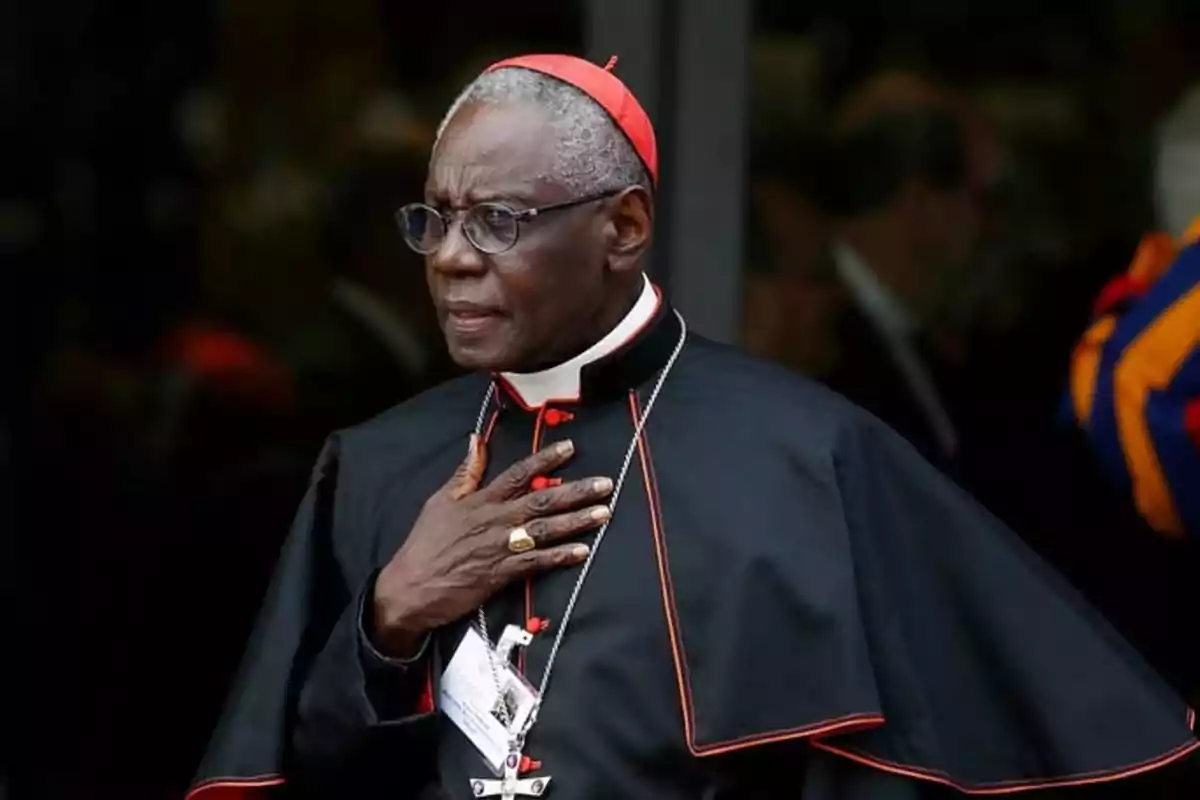
Robert Sarah, the conservative cardinal who could succeed Francis
A leading figure of the traditionalist wing, his profile is growing among those who are calling for a doctrinal shift in the Church
The recent death of Pope Francis has inevitably opened the debate about his succession. With a College of Cardinals mostly appointed by him, many assume that the next pontiff will continue with his pastoral line, with a social and open approach.
However, amid the speculations, a name resonates strongly among the more conservative sectors of the Church: that of Cardinal Robert Sarah. This Guinean prelate, known for his doctrinal fidelity, commitment to liturgical tradition, and firm defense of the moral principles of Christian civilization, embodies a clear restoration proposal for the 21st-century Church.
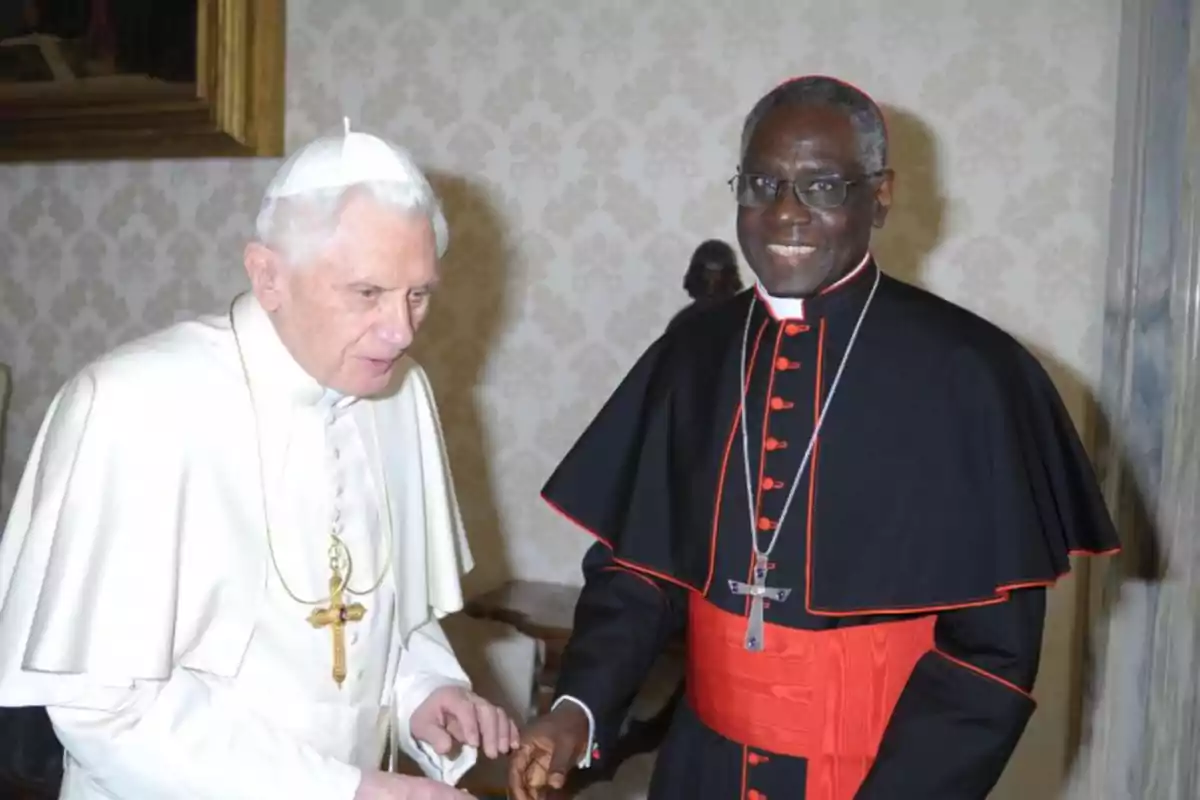
A Profile Forged in Fidelity
Born on June 15, 1945, in Ourous, a small village in Guinea, Robert Sarah comes from an animist family converted to Catholicism. He was ordained a priest in 1969, and in 1979, at the age of 34, Pope John Paul II appointed him Archbishop of Conakry, making him the youngest prelate in the world at that time. His career in the Holy See has been equally remarkable: Secretary of the Congregation for the Evangelization of Peoples, President of the Pontifical Council "Cor Unum," and finally, Prefect of the Congregation for Divine Worship and the Discipline of the Sacraments from 2014 until his resignation in 2021.
It was Pope Benedict XVI who made him a cardinal in 2010, with whom he maintained a deep theological and liturgical affinity. Sarah has been described as one of the most faithful heirs of Ratzinger's thought, especially in his concern for the "hermeneutics of continuity" and his diagnosis of a "dictatorship of relativism" that threatens the West and the Church itself.
Cardinal Sarah's Economic Thought
Cardinal Sarah has insisted on the importance of the economy serving the human being and not the other way around. Although he is not an economist, he has expressed concern about economic models that subordinate personal freedom and private initiative to coercive state structures.
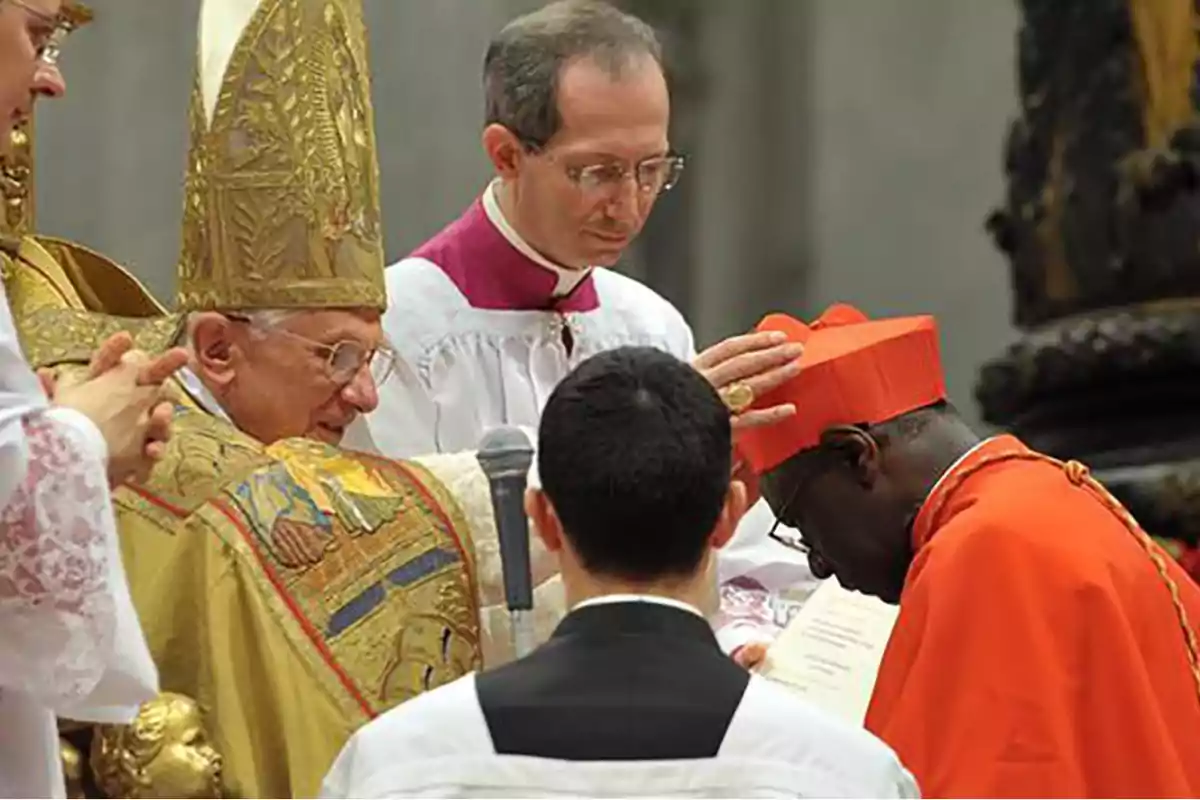
Sarah has been clear in his rejection of planned economies, warning that regimes attempting to organize all economic life from the state end up denying human freedom and attacking personal dignity. In his view, economic collectivism, as practiced in socialist and communist experiences, has inevitably led to moral and material failure, destroying both creativity and the natural community fabric of societies.
For the cardinal, a free economy, ordered by solid moral principles, subsidiarity, justice, and solidarity, is compatible with the Church's social doctrine. It is not about idolizing the market, but about allowing people, families, and intermediate institutions to thrive without the oppression of an omnipresent state.
Defender of Tradition Against Modernism
Cardinal Sarah is an emblematic figure of the traditionalist wing of the Catholic Church. He has firmly defended the Tridentine liturgy and promoted the celebration of the Mass ad orientem, that is, facing the liturgical east, as a theological gesture that refers to the mystery of the cross and resurrection.
In his written work, particularly in books like "God or Nothing," "The Power of Silence," and "The Day is Now Far Spent," Sarah holds a frontal critique of the modern world, characterized by the loss of the transcendent sense and moral dissolution. According to him, the Church's crisis is not simply institutional or pastoral, but spiritual and doctrinal.
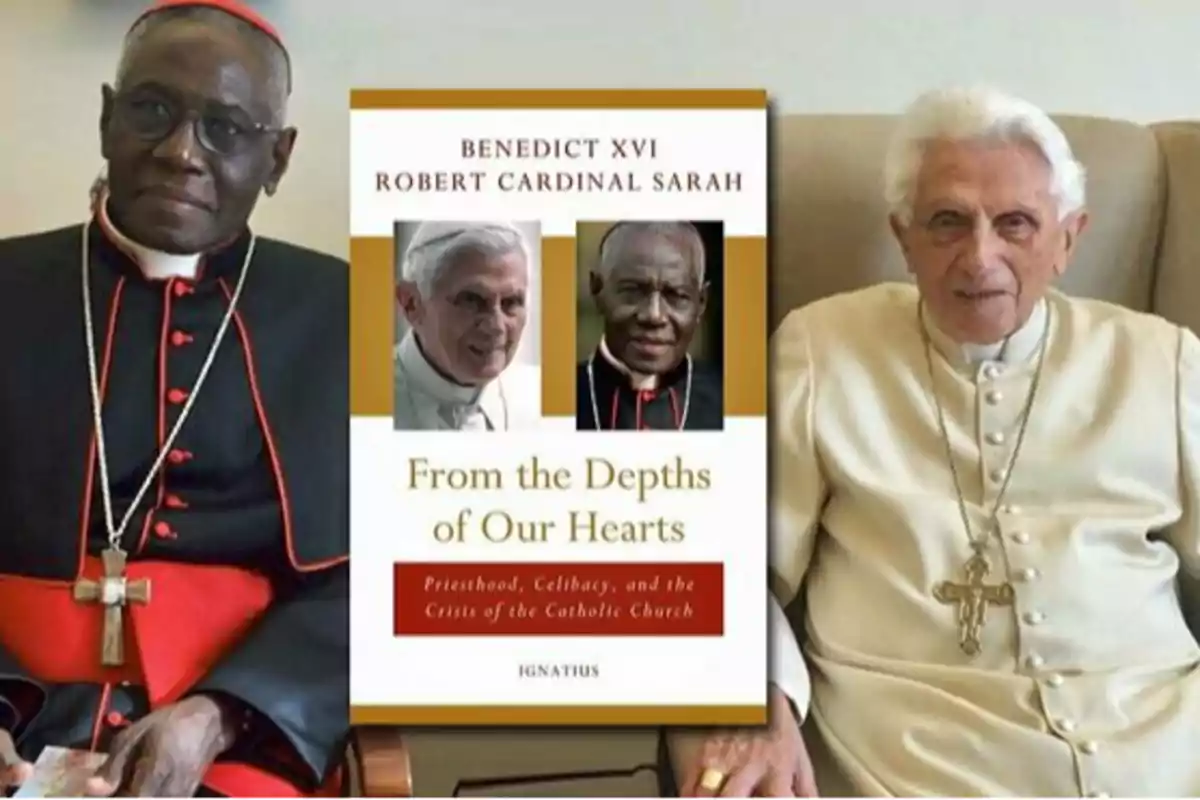
From this perspective, he openly opposes attempts at doctrinal "aggiornamento" that, in his opinion, dilute Catholic identity. His critique includes contemporary positions on the blessing of homosexual unions, communion for divorced and remarried individuals, and the ordination of women to the diaconate. For Sarah, these discussions are not mere pastoral adaptations but symptoms of a serious doctrinal confusion.
Spiritual Ally of Benedict XVI
The spiritual and intellectual harmony between Cardinal Sarah and Pope Benedict XVI is deep and evident. Both share a theological vision anchored in objective truth, the centrality of Christ, and the defense of the liturgy as the highest expression of the divine mystery. They agree in their diagnosis of a crisis of faith in the modern world, caused by moral relativism, aggressive secularization, and the loss of the transcendent sense.
Sarah has adopted the "hermeneutics of continuity" proposed by Ratzinger as a key to interpreting the Second Vatican Council, distancing himself from rupture readings that, in his opinion, have weakened Catholic identity. Additionally, both have been staunch defenders of priestly celibacy, the sacredness of the Eucharist, and the need for a reverent liturgy, oriented to God rather than man. It is no coincidence that Sarah is considered by many as the true continuator of Benedict XVI's theological and pastoral legacy in times of doctrinal confusion.
An Improbable but Significant Papabile
With the papal vacancy, Robert Sarah's name has resurfaced on the lists of possible successors. Although his election faces obvious obstacles, most cardinals were created by Francis and might lean toward a continuity line, Sarah represents a concrete possibility of rupture. In ecclesial terms, his election would mean a sort of internal "counter-reformation," a return to doctrinal rigor and liturgical sacredness.
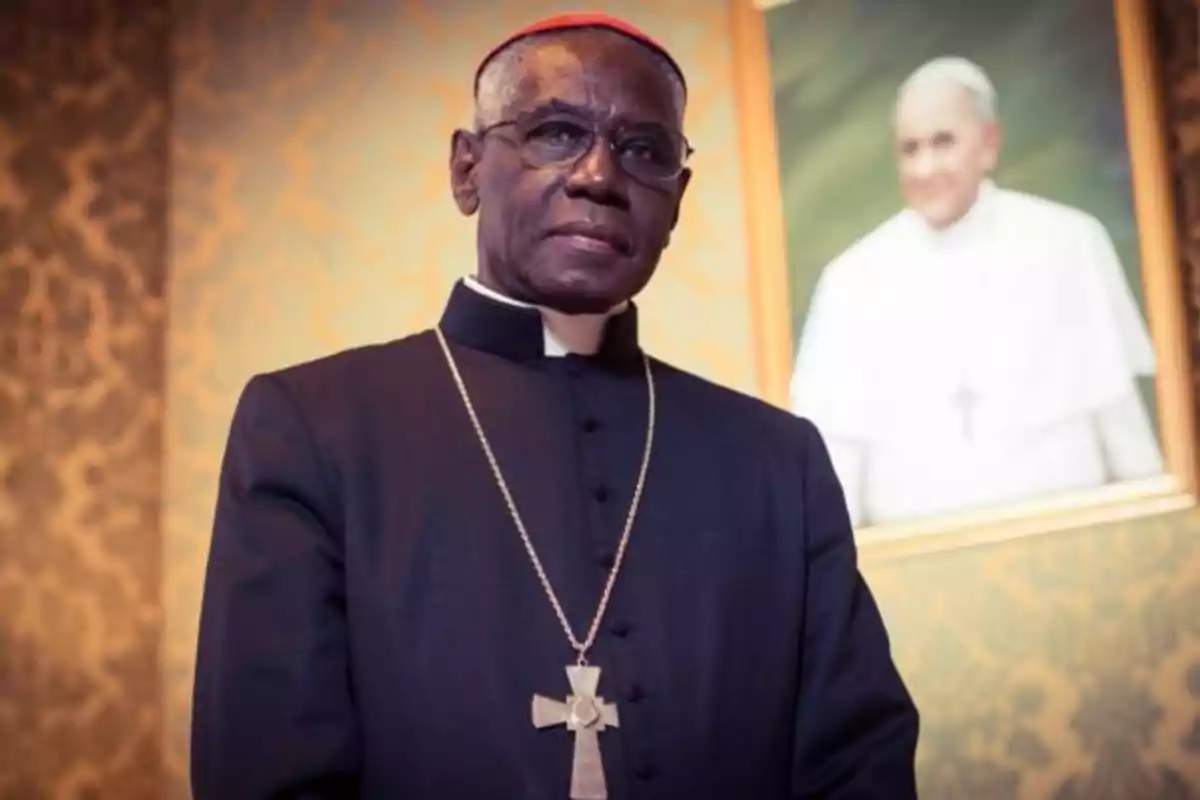
Beyond his age (he is 79 years old), his figure symbolizes a claim by broad Catholic sectors who feel marginalized in the Francis era. The African cardinal channels the discontent of those who perceive that the Church has ceased to be a moral beacon to become an echo of the world. In this sense, his candidacy transcends the electoral: it expresses a deep tension about the Church's spiritual direction.
More posts: